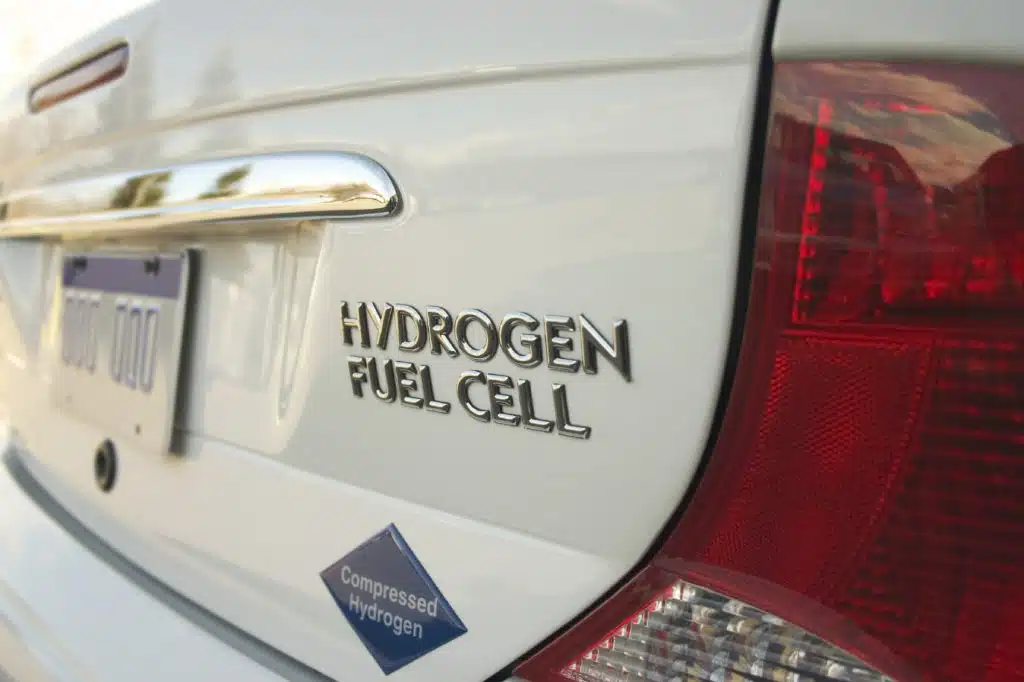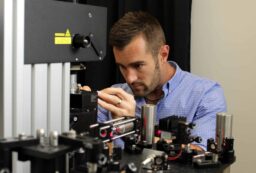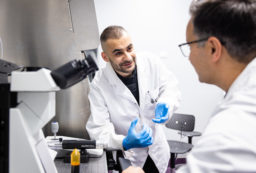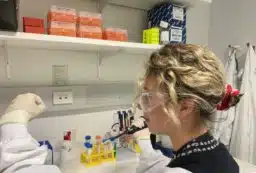New catalysts which more efficiently generate fuels are being developed by UNSW researchers to meet our future energy and transport needs.
“Whilst some renewable energy can be stored in batteries to power our cars, we will still require liquid transport fuels for industries where using batteries are not feasible, especially for the aviation industry – as large passenger planes will never fly on batteries,” says Jessica Stanley, a postdoctoral research associate at UNSW.
In work done during her PhD at the University of Sydney, Jessica created a catalyst that used two metals, one that was very good at using hydrogen to convert biomass models, and one that attracts sulfur.
“In a major breakthrough, I developed a catalyst where the sulfur-loving metal, ruthenium, protects the catalytically active, hydrogen-loving metal, platinum,” reveals Jessica.
Even now, catalysts are required to convert raw materials like oil into fuel; the new challenge is to develop a catalyst which turns biomass (i.e. plant materials) into biofuel with less processing, reduced waste and a higher turnover.
One of the big challenges with developing biofuels is that all woody plants contain sulfur. “Sulfur poisons, or deactivates, the catalysts which hinders the production of biofuel.” explains Jessica.
Jessica presented her research at Fresh Science New South Wales 2015.
Fresh Science is a national program that helps early-career researchers find and share their stories of discovery. Over 50 early-career researchers nominated for Fresh Science NSW, which was held at the Australian Museum (training) and Three Wise Monkeys Hotel (public challenge event).
Fresh Science New South Wales was supported by the Australian Museum and the University of New South Wales.
Contact: Jessica Stanley, The University of New South Wales (UNSW), jessica.stanley@unsw.edu.au






 Fresh Science is on hold for 2022. We will be back in 2023.
Fresh Science is on hold for 2022. We will be back in 2023.